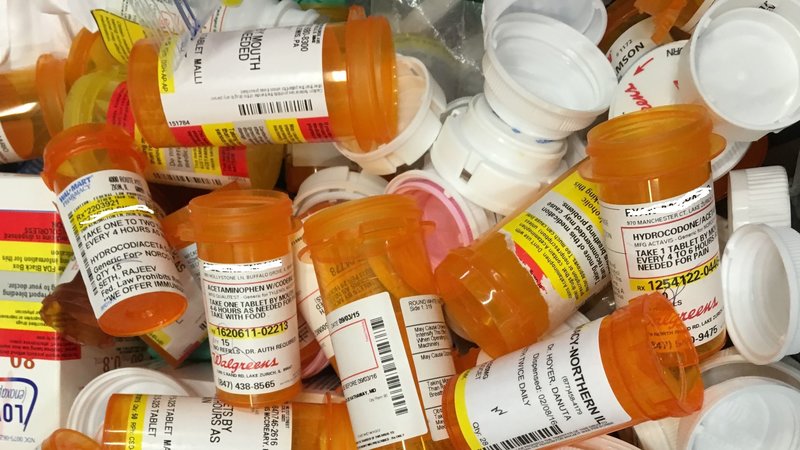
Any expired, unwanted, or unused medicines can be disposed of in a local “take back” program or medication drop box at a police station. The U.S. Drug Enforcement Administration (DEA) sponsors National Prescription Drug Take Back Day in communities nationwide in the Spring and Fall. Many communities also have their own drug take back programs. Check with your local law enforcement officials to find a location near you or the DEA to find a DEA-authorized collection site in your community. You can also check with your local pharmacist as some pharmacies have mail-back programs and disposal kiosks for unused medicines.
When a take-back option is not readily available, you can dispose of medicines at home. Some medications, such as controlled substances have high risk for abuse, it is recommended that they be flushed down the toilet by the FDA. Learn more about medications that should be flushed here.
If you are going to dispose of your medication at home, it is recommended you dispose of them in the household trash in the following way.
- Remove the drugs from their original containers and mix them with something undesirable, such as used coffee grounds, dirt, or cat litter. This makes the medicine less appealing to children and pets and unrecognizable to someone who might intentionally go through the trash looking for drugs.
- Put the mixture in something you can close (a re-sealable zipper storage bag, empty can, or other container) to prevent the drug from leaking or spilling out.
- Throw the container in the garbage.
- Scratch out all your personal information on the empty medicine packaging to protect your identity and privacy. Throw the packaging away.
Do not flush unused medications (other than certain controlled substances) down the toilet. This can negatively impact the environment and our water sources.
Don’t Forget-There Are No Silly Questions
If you are unsure about something, have doubts about your medications, how to dispose of un-needed medications, why you are taking them, how to take them or if your medications look or make you feel different it is best to be cautious and ask! It never ever hurts to ask or double check!
About the Author:
Christine Cambareri is an Oncology Clinical Pharmacy Specialist with more than 5 years of experience working exclusively with the oncology patient population. She is a board certified pharmacotherapy specialist and a board certified oncology pharmacist. Christine helps to take care of patients with solid tumor types, providing education and counseling on chemotherapies, side effect management and serves as a drug information resource for her patients and providers.